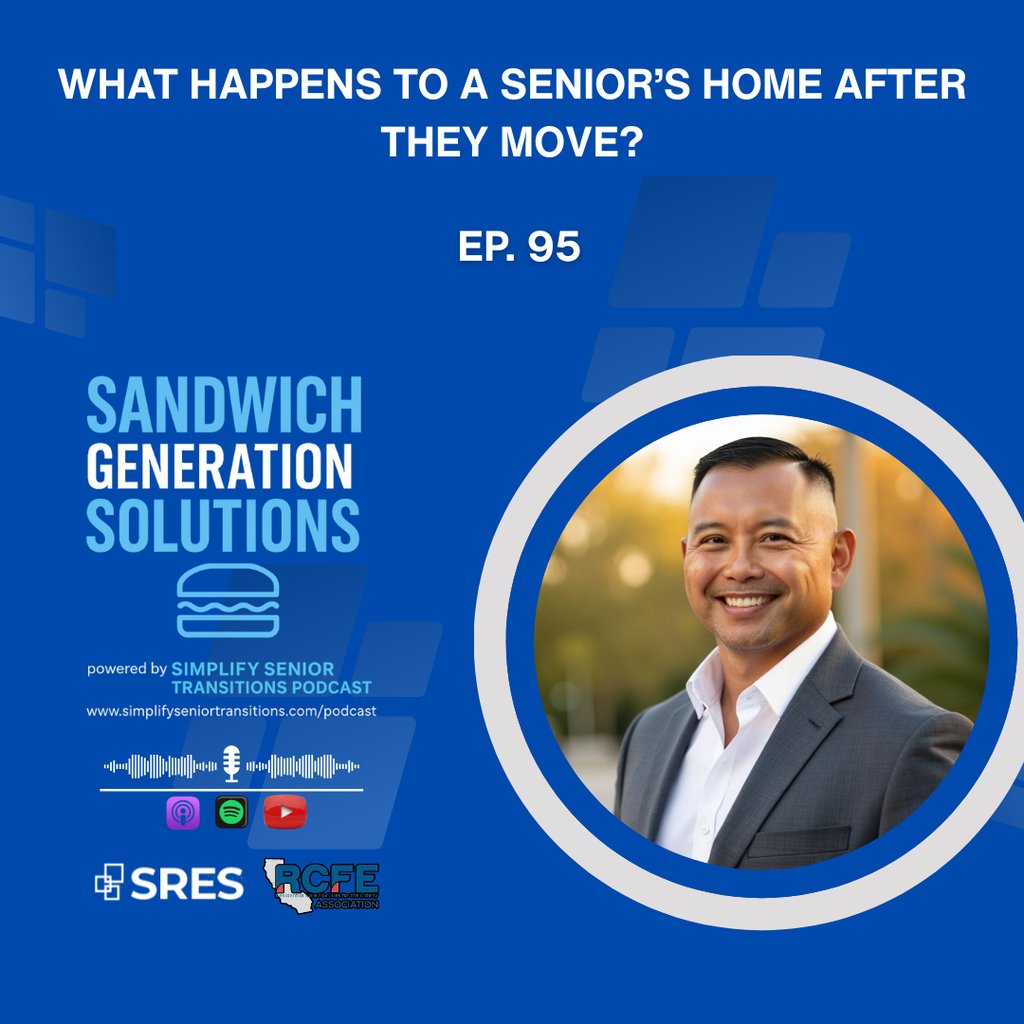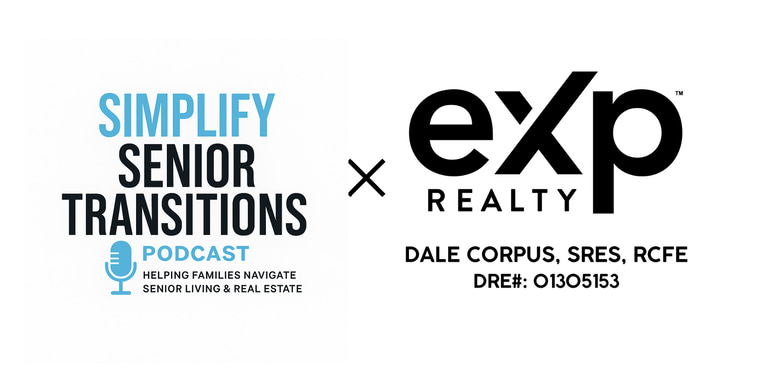Navigating the Big Move: What to Do with Your Parent’s Bay Area Home After Assisted Living
Practical advice for Bay Area families on selling, renting, or keeping a senior’s home during the transition to assisted living.
Dale Corpus
10/21/20254 min read
Navigating the Big Move: What to Do with Your Parent’s Bay Area Home After Assisted Living
If you are an adult child helping an aging parent transition to senior living, you are likely feeling overwhelmed. You’re juggling care choices, managing emotional stress, and tackling the monumental task of downsizing a lifetime of possessions.
It’s hard enough finding quality assisted living in the expensive San Francisco Bay Area—we’re talking Contra Costa, Alameda, Santa Clara, San Mateo, San Francisco, Solano, and Napa counties—but then you have to face the next huge question: What happens to the house?
Making this decision isn't easy, but you don’t have to navigate this transition alone. We sat down with Senior Transition Specialist and Real Estate Expert Dale Corpus to break down the most common options and help you make the best decision for your family.
What You’ll Learn in This Episode
This episode provides a clear breakdown of the three main options for a senior's home after they move to assisted living: selling, renting, or keeping it in the family. You will also learn the key financial and practical questions you need to ask yourself to determine which option is the most realistic and beneficial for your loved one’s long-term care.
The Financial Reality of Bay Area Senior Care
For many families, the transition is driven by necessity, and the decision about the home is intrinsically linked to funding care. Bay Area monthly costs for assisted living can be staggering, ranging from $4,500 to $10,000 or more per month. This financial pressure often makes selling the home the most practical and necessary option to cover ongoing expenses.
The transition involves significant challenges, including the stress of choosing the right care option and the emotional toll of downsizing. Whether the move was unexpected or carefully planned, the outcome regarding the home is critical for financial stability.
Option 1: Selling the Home for Simplicity and Funding Care
For many families, selling is the best route because it simplifies financial management and provides essential funding. Home sale proceeds can directly help cover high monthly assisted living costs.
Selling the home offers three primary benefits:
Funds Assisted Living Costs: Provides the necessary capital to ensure your loved one receives the required level of care.
Eliminates Ongoing Maintenance: Say goodbye to property taxes, repairs, and constant upkeep, which can be a huge drain on already busy family caregivers.
Avoids Market Risks: Selling now prevents potential financial complications down the road if the market changes or the house isn’t otherwise needed.
Practical Tip: If you choose to sell, you need to decide whether to sell "as is" for a quick, hassle-free process or if you have the time and resources to make repairs and list it traditionally. If you need to sell quickly to cover immediate care costs, experts like Dale specialize in helping families sell homes without the stress of repairs or showings.
Option 2: Renting for Steady Income
Some families choose to rent the home instead of selling. Renting can offer a steady income stream that helps offset senior care costs while providing potential long-term appreciation if the market increases in value.
However, renting is a significant commitment. It involves responsibilities like tenant management, ongoing maintenance, and exposure to market fluctuations. Before deciding to rent, you must consider costs for property taxes, insurance, and management. You also need to decide whether you will self-manage the property or hire a professional property manager, and understand the risks involved, such as tenant challenges, repairs, and vacancies.
While selling simplifies everything, renting might be worth exploring if you prefer passive income.
Option 3: Keeping the Home as a Family Legacy
Keeping the home is often an emotionally compelling choice. Families usually choose this option for sentimental reasons, wanting to keep the home in the family for future generations. Other reasons include utilizing it for multi-generational living if a family member wants to move in, or for estate planning purposes, such as passing it down through a trust or inheritance.
Before keeping the home, be realistic about the commitment. Consider:
Maintenance: Who will be responsible for upkeep, taxes, and repairs?
Mortgage: Will the family need to be responsible for ongoing mortgage payments?
Desire vs. Obligation: Does the family truly want the home, or is it being kept out of obligation? If keeping the home creates financial strain, selling might be the better long-term solution.
How to Decide What’s Best for Your Family
To navigate this complex decision, Dale recommends asking yourself three critical questions:
Does my loved one need the home sale proceeds for their care?
Can we afford to keep or rent the home?
Is managing the property realistic for our family?
If you are unsure, getting expert guidance can help you explore solutions tailored to your family’s unique needs.
Need Expert Guidance on Your Senior Transition?
Making the decision about your family home isn't easy, but you don't have to face it alone. If you are navigating this transition in the Bay Area and need guidance on selling your senior’s home without stress, schedule a FREE consultation today.
Schedule your FREE consultation: www.simplifyseniortransitions.com
You can also DM Dale directly via Instagram with quick questions: @soldbydale
P.S. Got news or an amazing story to share? Hit us up at dale.corpus@exprealty.com, and you might be featured in our next episode! Remember, always check out the transcript for detailed insights. Happy listening!
Watch The Podcast Here



Transitions Made Simple
Helping seniors transition with ease and peace.
📍 Serving the San Francisco Bay Area
📞 GET IN TOUCH
📬 STAY INFORMED
Dale Corpus, SRES, RCFE
📱 925-380-1657
📧 dale@simplifyseniortransitions.com
🕓 Available for free 15 min consultations by appointment
© 2026. All rights reserved.
Sign up for monthly senior transition tips & real estate insights.
